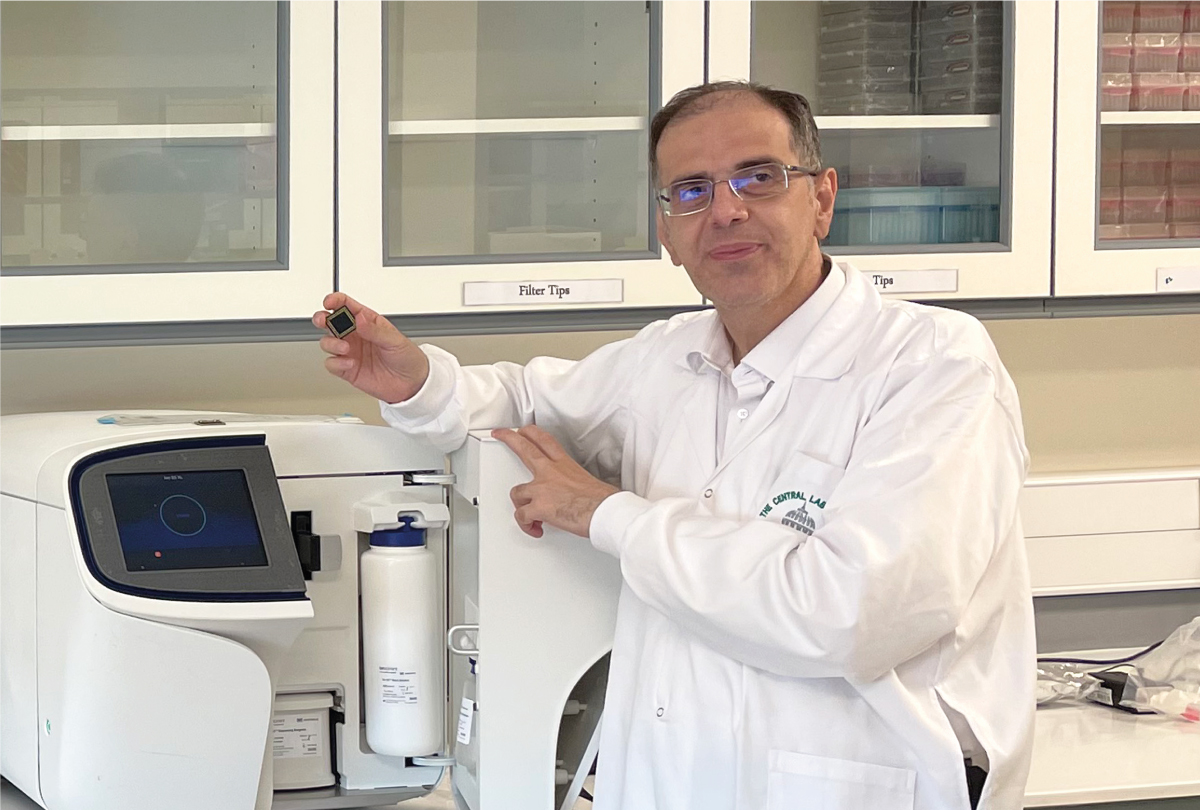
In the UAE, breast cancer is the most common cancer affecting women and constitutes around 40% of all female cancers. In addition to the rising incidence, another cause for concern is the advanced stage at presentation with the majority of women in the UAE diagnosed under the age of 40 with advanced stage of breast cancer.
To tackle this important issue, Al Jalila Foundation awarded a research grant to Professor Rifat Hamoudi from the University of Sharjah with the aim to understand ‘the role HER2, Estrogen and Progesterone receptors and PI3 kinase in breast cancer pathogenesis to provide deeper understanding of how the interplay of those biomarkers can initiate breast cancer and later lead to more aggressive forms of breast cancer in patients’. Understanding the underlying mechanism, pathogenesis can potentially discover therapies that can prevent the progression of the disease.
The study developed a pioneering technique by merging methods from classical pathology, molecular biology, mathematics, computer science and advanced bioinformatics to understand the role of progesterone receptor on breast cancer pathogenesis.
In summary, the research project led to the identification of various diagnostic, prognostic and potentially therapeutic biomarkers for breast cancer, facilitating the development and implementation of personalised medicine including prevention, early diagnosis and targeted combination therapy approaches giving hope to patients.

